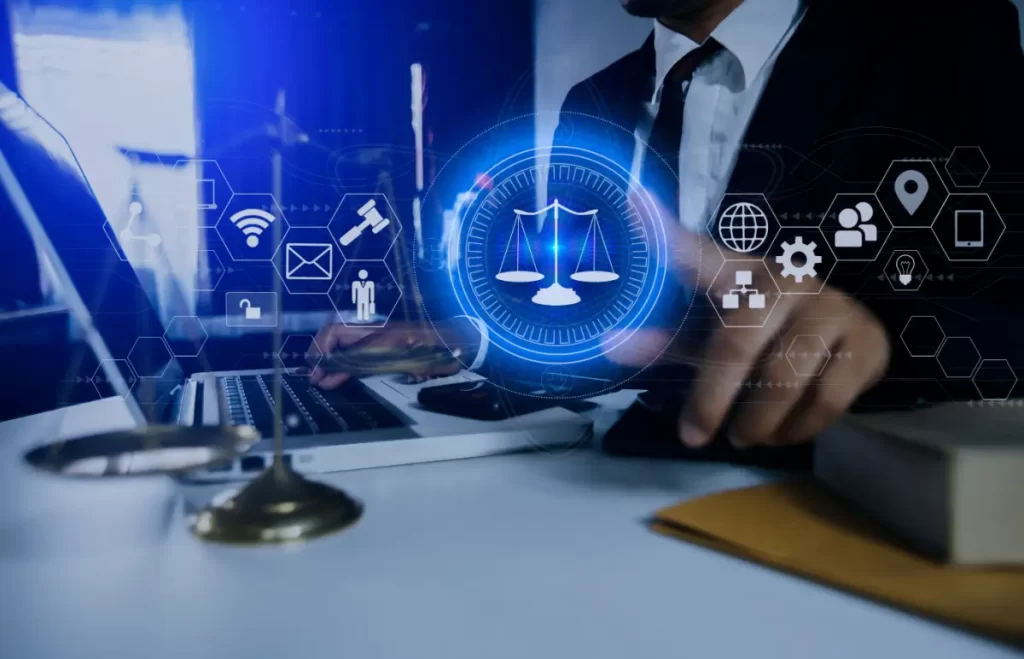Introduction to Technology Law
Technology is woven into the fabric of our daily lives. From smartphones to artificial intelligence, we rely on innovations that transform how we communicate, work, and play. But as these advancements surge forward, so too does the necessity for a framework that governs their use—enter technology law. This legal landscape shapes how tech companies operate while protecting consumers’ rights and fostering innovation.
Understanding technology law isn’t just for lawyers or industry insiders; it’s relevant for everyone navigating today’s digital world. Whether you’re a business owner looking to comply with regulations or an everyday user concerned about privacy issues, grasping the principles of technology law can empower you in this fast-paced environment. So let’s dive deeper into what technology law entails and explore its widespread implications across society and business sectors alike.
Key Areas of Technology Law
Technology law encompasses various key areas that address the complexities of our digital world. Cybersecurity is one critical area, focusing on protecting data and systems from unauthorized access and breaches. Organizations must adhere to regulations designed to safeguard sensitive information.
Intellectual property rights also play a vital role in technology law. As innovation flourishes, ensuring creators have ownership over their inventions and ideas becomes crucial. This includes patents, copyrights, and trademarks that protect unique content.
Privacy laws form another essential component. With vast amounts of personal data collected online, legislation like GDPR emphasizes individuals’ rights regarding their information.
Additionally, e-commerce regulations govern online transactions, ensuring fair practices for consumers and businesses alike. Technology law provides the framework necessary for these rapidly evolving sectors to thrive while maintaining ethical standards and legal compliance.

The Role of Technology Law in Society
Technology law plays a pivotal role in shaping our digital landscape. It establishes the rules that govern how technology is developed, used, and shared. This legal framework ensures that innovation can thrive while protecting individual rights.
As society becomes increasingly reliant on digital solutions, tech law addresses critical issues such as privacy and data security. It guides organizations in handling sensitive information responsibly and fosters consumer trust.
Moreover, technology law influences ethical technology regulation practices within tech companies. By setting standards for transparency and accountability, it encourages businesses to operate with integrity.
Additionally, these laws promote fair competition by preventing monopolistic behaviors in the tech industry. They create an environment where startups can challenge established giants without fear of unfair practices.
In essence, technology law serves as a balance between progress and protection—ensuring that advancements benefit society as a whole while safeguarding essential values.
Impact of Technology Law on Businesses
Technology law significantly influences how businesses operate in the digital age. Compliance with regulations is essential for maintaining consumer trust and avoiding legal pitfalls. Companies must navigate a maze of laws related to data protection, intellectual property, and cybersecurity.
For startups, understanding technology law can be a game-changer. It helps them establish solid foundations while protecting their innovations from infringement. Meanwhile, established companies face ongoing challenges as they adapt to new technologies and changing regulations.
In an environment where data breaches are common, tech law guides businesses in implementing robust security measures. This not only safeguards sensitive information but also mitigates potential liabilities.
Additionally, technology law fosters innovation by outlining clear guidelines for emerging tech sectors like artificial intelligence and blockchain. By providing regulatory clarity, it encourages investment and development while balancing ethical considerations.
Challenges and Controversies in Technology Law
Technology law faces numerous challenges. Rapid advancements often outpace legal frameworks. This creates a gap where old regulations struggle to apply to new innovations.
Privacy concerns are at the forefront of these issues. With increasing data collection, individuals worry about how their information is handled and shared. Legal protections seem inadequate in many cases.
Intellectual property rights also spark controversy. Digital content can be easily copied and redistributed, leading to disputes over ownership and fair use. Striking a balance between protecting creators and promoting innovation remains tricky.
Moreover, cybersecurity laws are evolving as threats become more sophisticated. Companies must navigate complex regulations while safeguarding sensitive data from breaches.
Ethical considerations arise around emerging technologies like artificial intelligence. Questions about accountability and bias challenge existing legal structures, prompting urgent discussions among lawmakers and technologists alike.

Future Trends and Changes in Technology Law
The landscape of technology law is rapidly evolving. As artificial intelligence and machine learning become more integrated into everyday life, regulations will need to keep pace with these advancements.
Data privacy remains a hot topic. Governments worldwide are likely to implement stricter laws to protect user information and ensure transparency in data usage.
Cybersecurity also demands attention. With the rise of cyberattacks, legal frameworks must adapt to address new threats and hold organizations accountable for their security practices.
Blockchain technology offers exciting possibilities but raises complex legal questions regarding ownership and intellectual property rights.
As remote work becomes a standard practice, employment laws may shift to accommodate changing workplace dynamics while ensuring worker rights are upheld in a digital environment.
Conclusion
Technology law is an ever-evolving field that reflects the rapid advancements in technology and their implications for society. As we navigate through digital landscapes, understanding this area of law becomes crucial. It encompasses various aspects like data privacy, intellectual property, cybersecurity, and more.
Businesses must stay informed about these legal frameworks to thrive. Compliance with technology laws not only protects companies from lawsuits but also builds trust with consumers. Embracing these regulations can lead to innovative practices that enhance brand reputation and customer loyalty.
However, challenges persist within tech law. The pace at which technology develops often outstrips legal responses. Issues like jurisdiction in cyberspace or how to handle artificial intelligence raise complex questions without clear answers.
Looking ahead, the landscape will continue to shift as new technologies emerge. Legislative bodies are tasked with creating frameworks that address current challenges while fostering innovation. Staying abreast of these changes is essential for both individuals and businesses alike.
As we move forward in this technological age, staying informed about tech law will help us navigate potential pitfalls while embracing opportunities for growth and development.